Weeknotes 260: Meta AI is reading your mind
Find the latest news about human tech intelligence partnerships, robotics, design, and more.
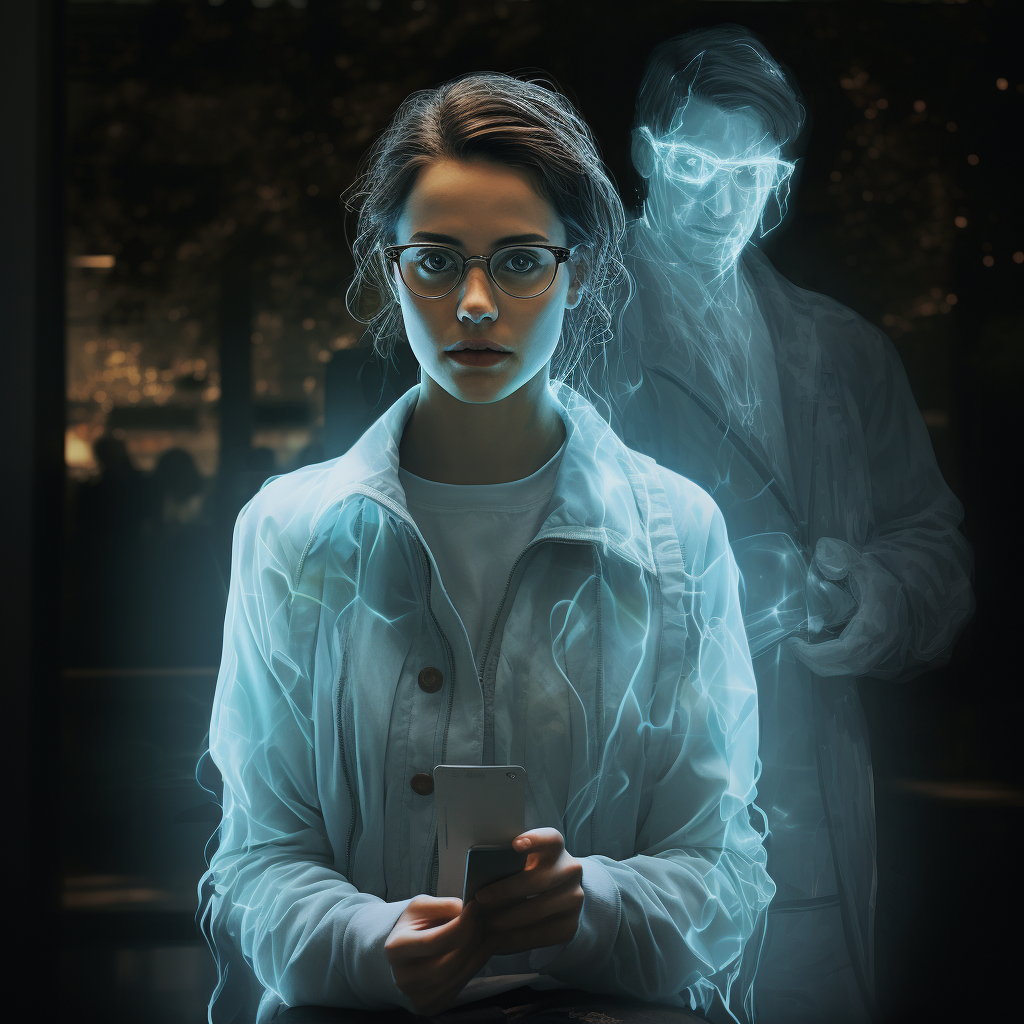
Hi y’all,
Writing this, I am on a train back from the first day (for me) at Dutch Design Week. It is always an important moment in the year as it gathers many people working in both design practice and academics. I visited some of the main exhibitions in Klokgebouw, the launch of PONT, the Embassy of Mobility, an exhibition of TU Delft Industrial Design and the presentation of the book Mobility Society. It's a busy day already. I will be around for two more days and moderate a workshop on Thursday.
Last week was also busy gathering knowledge and interacting through the Design & AI symposium. I participated in a pre-symposium workshop, creating a magazine for the future (2043) and visited the 1,5 days of the symposium. I made a thread on Bluesky and X that I repeat here, as it gives a good report of my impressions.
After the 1st excitement on new generative tooling, there is a true exploration of what design with AI means, from applying tools to deeper conversations with the AI to understand yourself.
Check out this lovely project by Anne Arzberger, for instance, on Crafting Human-AI Reflexive Practice
And there is attention to the role of AI in society and its impact on our lives. That deserves even more focus in looking into Design for AI behaviour. The (un)intended consequences (plug: thingscon.org/things-2023).
Another thought provoked during the pre-workshop making a future design magazine: what if the AI becomes the user? How do we design for the AI? And do we experience AI in a world that is ubismart? Or ubigpt, as Matt Webb explored earlier.
In the near future, we can think of AI that takes more responsibility for its own actions. Think about the climate impact. An AI that pushes back on you when you ask it to perform a task that a human can do better. Or at least make you aware of what energy it costs some to calculate.
Next year's edition will be embedded in the Dutch Design Week in Eindhoven, and one of the organisers, Stephan Wensveen, presented work on “Designing Conventional and Progressive AI Futures”. I am looking forward to seeing how Design & AI develop the coming year.
Events for the coming week
- Dutch Design Week is on. So there are a lot of things to visit in Eindhoven. Some things to consider:
- DRIVE; daily short show and workshops afterwards. We are doing a Wijkbot reflection workshop on the Thursday edition themed Digital Society (livestream)
- Design United Dialogues, also a daily program, for instance, ‘Climate Futures Now’ today
- Manifestations. I am not sure if I will have time, but always a nice collection of interactive art that provokes thinking.
- Embassy of Mobility. Visited it on Monday.
- Dream, etc., from TUD. Some nice student projects in the basement of the skate hall
- Klokgebouw with among others the Innovationlabs
- Van Abbe on inclusivity by design
- ICAI the Labs; How can AI help to become more sustainable, 26 October, online
- 27 October - Creative Morning Rotterdam - https://creativemornings.com/talks/october-is-endurance
- 28+29 October - Kikk festival Namur https://www.kikk.be/
- 1 November - Online - General Seminar - Circular Economy
- 31 October- 1 November - Amsterdam - Society 5.0
- 1-5 November - Utrecht - Impakt
- 2 Nov AI Eindhoven - https://www.stadslabeindhoven.nl/2023/10/tectalk-ai-voor-eindhoven/
Notions from the News
This report by BBC R&D gives a good look into the future developments and is aiming to support preferable futures. From the shifts in world balance to new interactions and, of course the impact of living with AI. Worth a read.

The revival of the smart home is also mentioned, so let’s link these:

AI
Scott Belsky is exploring some ways AI may change business models and impact on creativity and marketing. He is looking at how the impact of a different experience of AI-mediated services will have unexpected changes. Google is downplaying the role of AI in marketing, missing capabilities for seeing the big picture and being really creative.
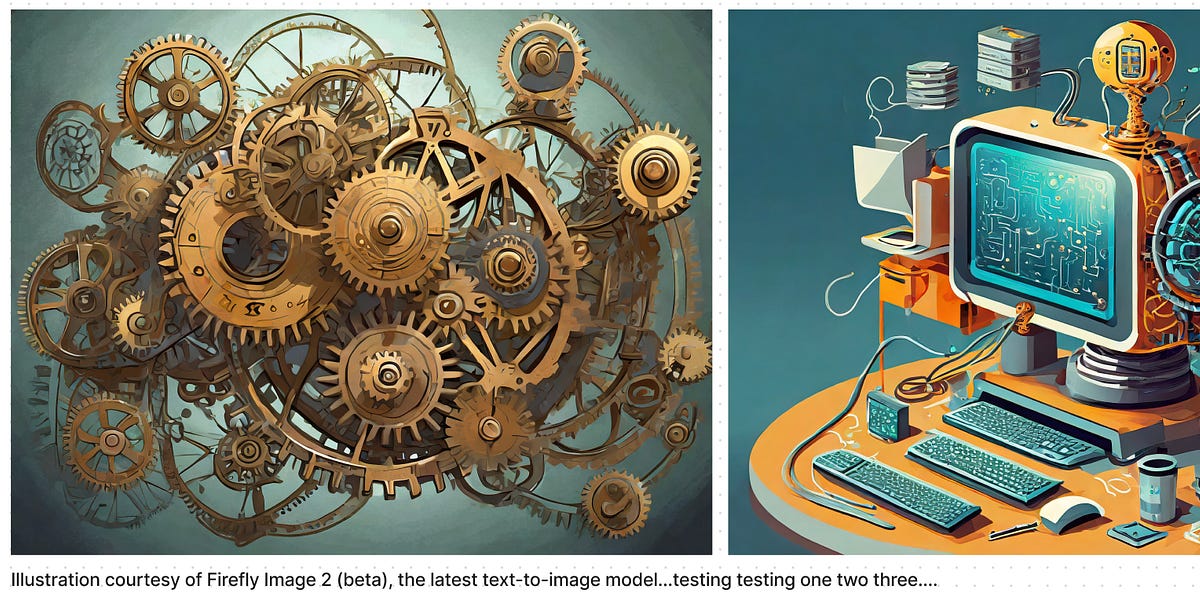

There is pushback from publishers on a new Google tool, Search Generative Experience; “it is even more threatening to us and our business than a crawler that is crawling our business illegally.”
/cloudfront-us-east-2.images.arcpublishing.com/reuters/FFCSLIADBFJUJIVJNSXBIORK64.jpg)
Ethan Mollick proposes an analysis method to define whether AI would be a successful version of a role. Compare the Best Available AI with the Best Available Human and draw your conclusions.

OpenAI offers generative images with Dall-E 3 from within the ChatGPT app for paying customers.
/cdn.vox-cdn.com/uploads/chorus_asset/file/24247717/lp_logo_3.0.jpg)
It is not that surprising that China is blocking a digital tool, in this case, Hugging Face.
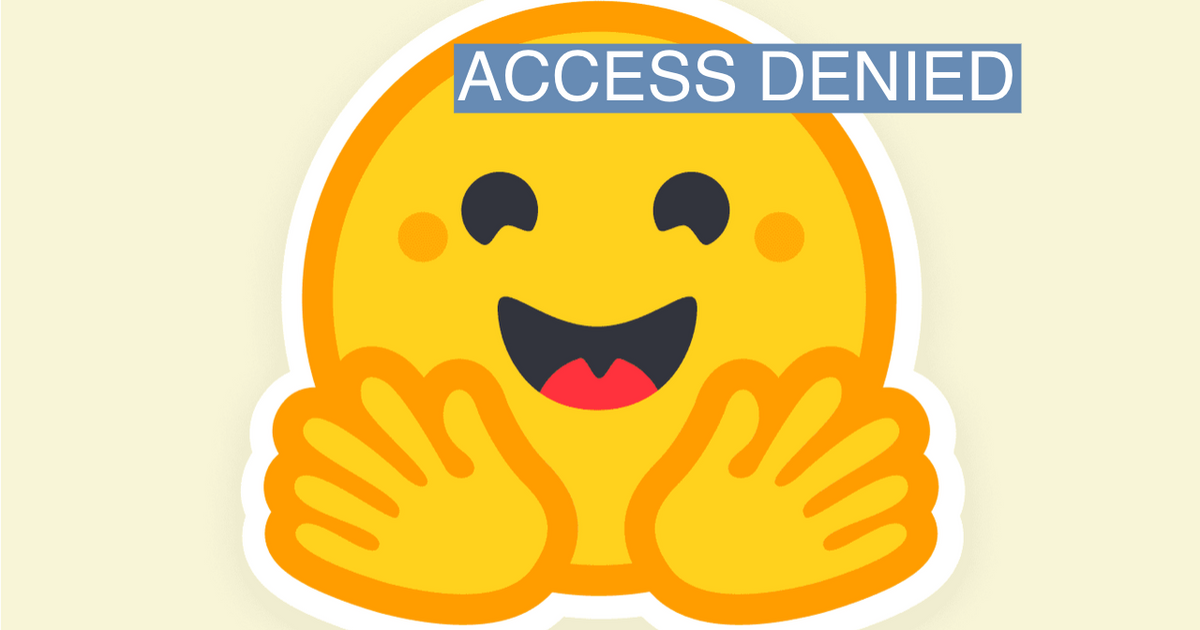
“(…) you could use ChatGPT with a code interpreter, some plugins and a text file full of saved prompts - but it might be better for those tasks to be unbundled into tools.” Benedict Evans is writing about Unbundling of AI, and had a podcast about it last week.
Is AI becoming more secretive? Stanford is ranking models on transparency.

Zuckerberg is showing off Meta AI in the new Ray-Ban first-person camera. I saw some more movies on this device and its usefulness as an instant camera. It is a nice case that labelling something AI can mean many things. Here AI is limited to the communication part from user to device. Or is Meta AI the addition to objects to extract intense personal data? Reading your mind is apparently next. The PR game of downplaying doomstories you created yourself has started.

In comparison, what will be the impact if Apple is integrating an AI assistant in Vision Pro?

On Apple and AI, being the first or the best? Is that credo working for AI, too, like it did for products? “The anxiety inside Apple is that many people inside do not believe Apple’s own AI/ML team can deliver, and but that the company — if only for privacy reasons — is only going to use what comes from their own AI/ML team.”

How polite are you to your AI assistant? Is there a difference in empathic conversations and friendship with AI?

AI Chatbots can read your personal information from your typing. Does not sound like a surprise.

Prompt engineering is not an isolated skill. You need subject knowledge to build the right prompt.
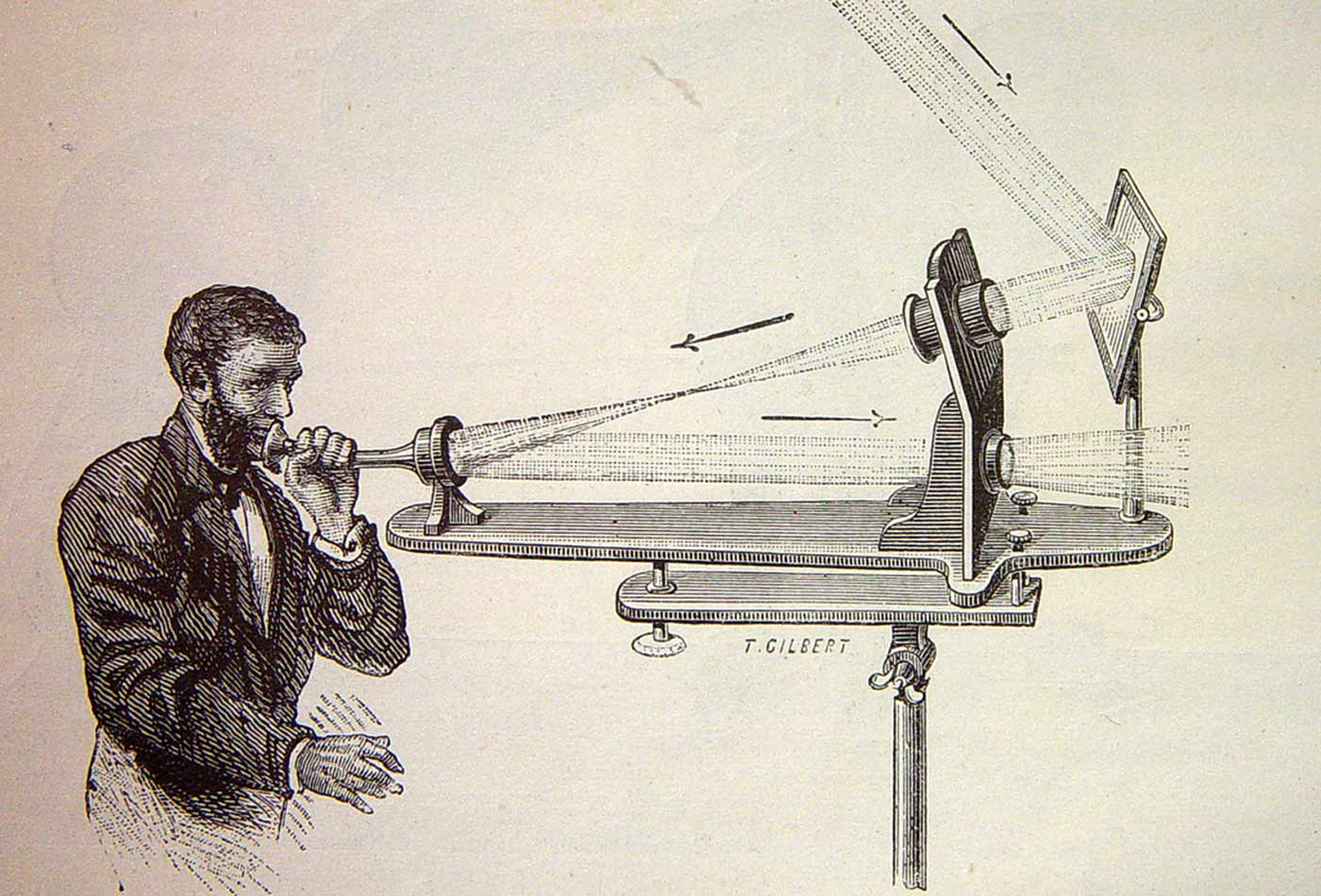
In shorter news: IBM has a ‘mind-blowing’ new chip to speed up AI; using GenAI in the fashion industry, Anyscale is one of the most important artificial intelligence companies that you may have never heard of, extend food expiration dates with the help of AI
Robotics
I am still determining the linking of social robotics with humanoid companions. What other forms of robotics will mean in social relations is much more interesting.

/cdn.vox-cdn.com/uploads/chorus_asset/file/25008896/Honda_AWV___Perimeter_Fence_Inspection.png)
Mixing AI with robotics and using performative embodiment is happening a lot in robotics (or in AI).
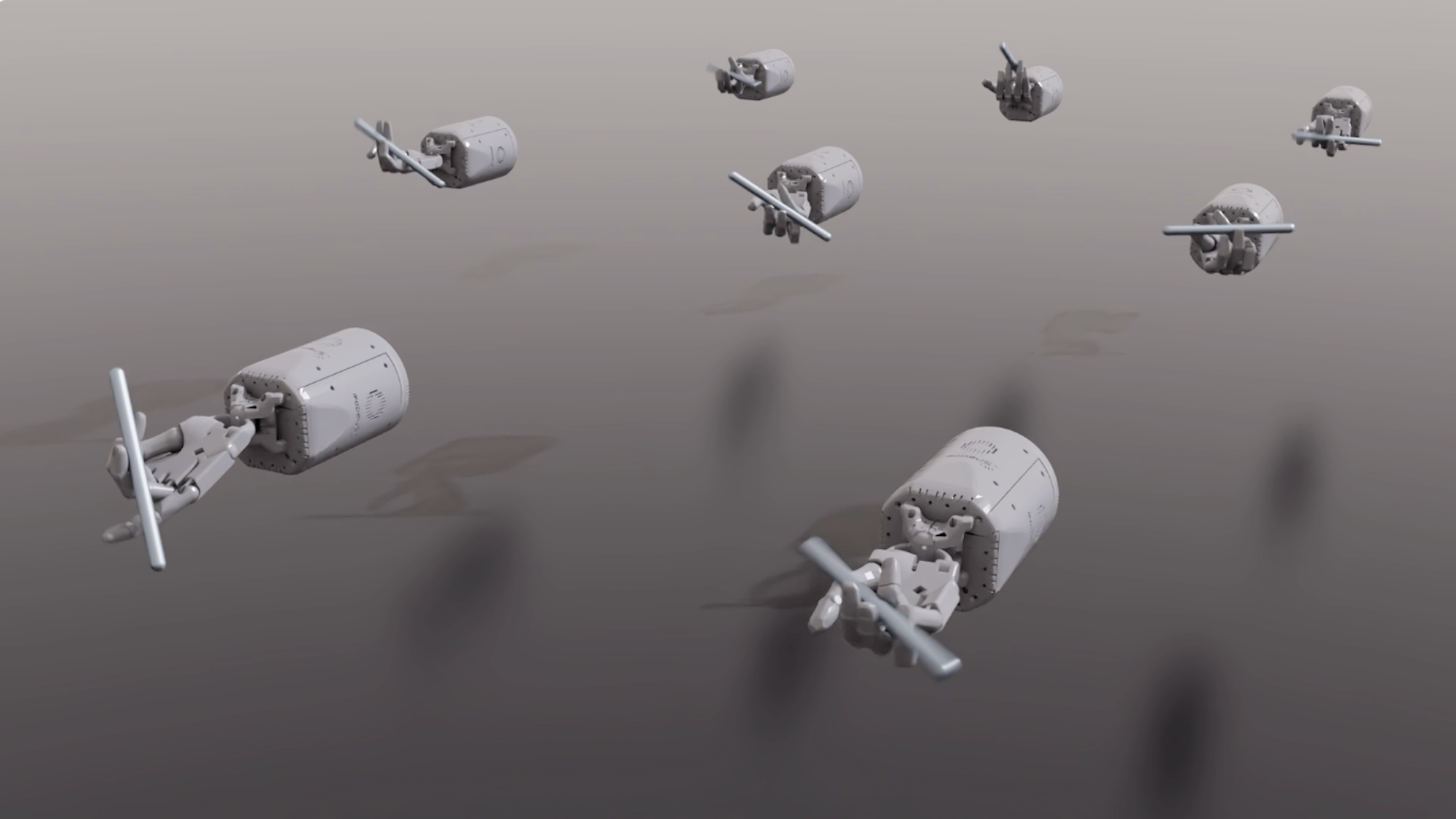
This feels more like a piece of art, a way to create human robots (inverse humanoids)
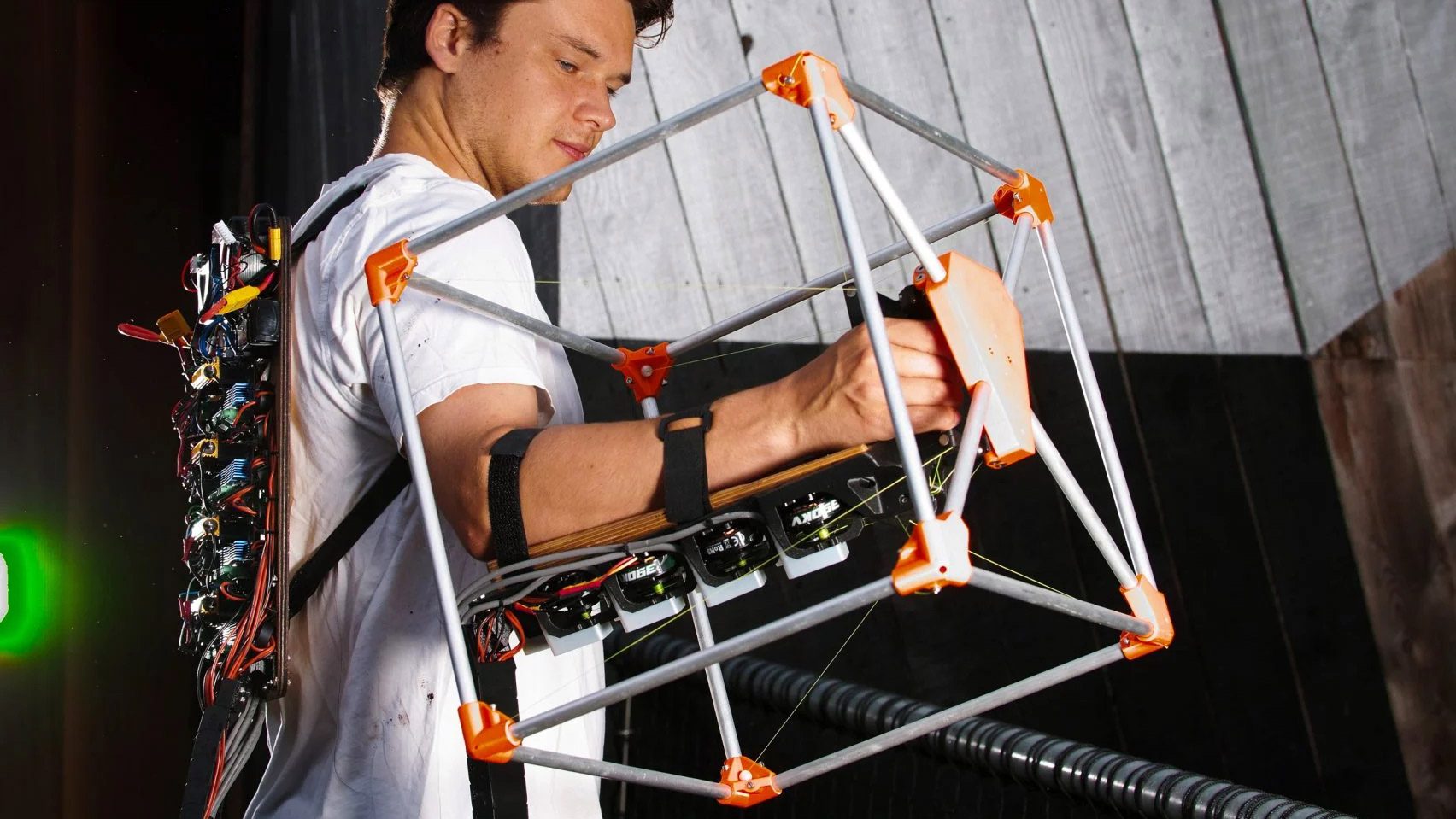
Societal
We used to try to generalise software users to personas that represent a group of users to design for. I believe it can often be more fruitful to design for a specific user and generalise after, especially in the time of adapting capabilities. This is a nice exploration of this.

Is this the real future of teleportation?

Critical pushbacks big and small, on the new manifesto of Marc Andreessen on techno-optimism. In podcasts and opinion pieces.


“The platform era is ending. Rather than build new Twitters and Facebooks, we can create a stuff-posting system that works better for everybody.” Social networks are broken down into pieces, personalised posts living their own lives in the activitypub. Is it the Internet of the future indeed?
/cdn.vox-cdn.com/uploads/chorus_asset/file/24596746/236620_Activitypub_New_Social_Protocol_HHerrera.jpeg)
“Twinning is on the rise.” My affected mind was linking it to a future where we have our own active digital ghosts. But no, this is about the real twins. There is an increase apparently. Why is that?

Global
Last week, I started with a potential global perfect storm; another term is “polycrisis”, coined in the 1990s, as I understood from this article, that tries to unfold and connect it to current developments—describing four drivers that are connected. The author is sketching strategies for a way out but pleading for a better understanding of the mechanisms first. In the meantime, let’s hope people come to their senses.

Paper for the week
Regenerative Futures: Eight Principles for Thinking and Practice
“Futures and strategic foresight methods can deepen regenerative approaches both conceptually and in practice. This article draws from a range of qualitive research methods that have explored these regenerative futures concepts, including Causal Layered Analysis, case studies and semi-structured interviews. It distils this research into eight guiding principles that provide a framework for transformation whilst also recognising that regenerative futures are context specific and unique to place.”
Camrass, K. (2022). Regenerative futures: eight principles for thinking and practice. Journal of Futures Studies.
See y’all
Have a great week; catch me if you are at DDW too. And also check ThingsCon; we announced our location and are planning the conference program. Share more on the program next week if all goes according to plan.

















